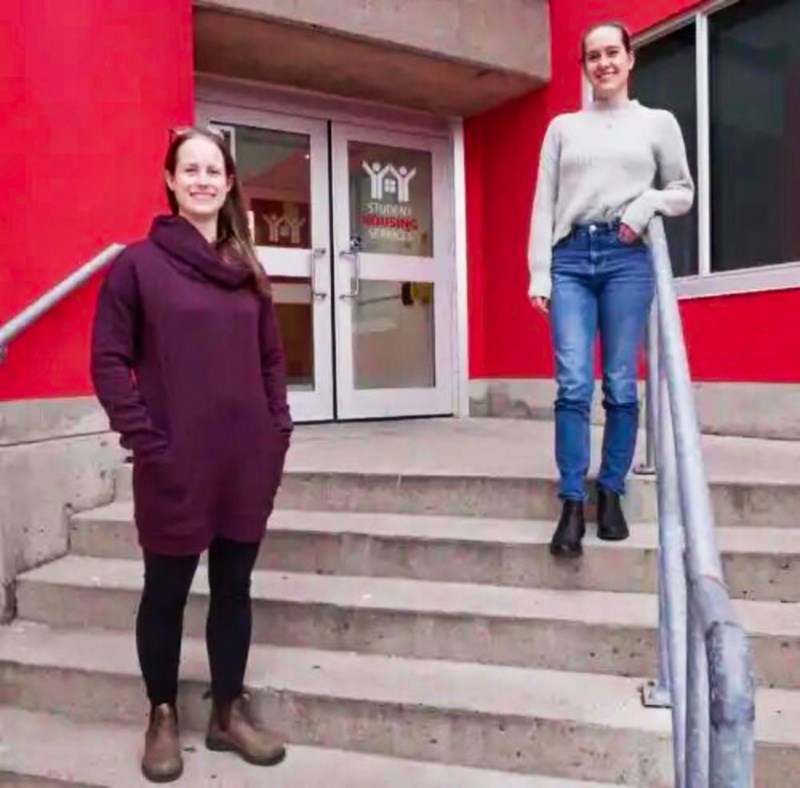With exam season coming up, the University of Guelph is checking in with first year student during its annual House Calls program.
This week, around 100 volunteers will reach out to 5,000 first year students to provide advice on any issues a student may be experiencing, and raise awareness around on campus resources that can support them. Run both semesters, volunteers will be checking in with students again during the winter semester.
Kristin Lennan, acting associate director, residence life, is a former house calls volunteer and now helps plan the program. She explains the program not only provides advice, but helps students foster a connection to their campus community.
"When you think about the student experience and what capsulates that, you really think of a caring, compassionate, involved community, that really looks out for one another" said Lennan, "and I think the house calls program really embodies that, it brings together a bunch of faculty, staff, alumni, from all different walks of life, to reach out to first year students."
"Sometimes, we see students who haven't been make connections within their community and haven't found their place on campus yet, and these calls can really help ignite their connection."
For the event, faculty members and staff volunteer to connect with students, giving students the opportunity to talk with people they may not get to on a regular basis. Lennan adds staff volunteers also help normalize certain student experiences for the first years, like taking their first exam.
“I think one of the things that’s so nice about this is staff come together to normalize this experience for students,” said Lennan.
“I think sometimes normalization helps them feel better in knowing they’re not alone in that and can help them, as they go into exams, not feel as worried.”
The way the calls work is volunteers are given some questions or tips to help guide the conversation between them and the student. Conversations can last 10 minutes or longer, depending on how the conversation is going.
"Some callers have spent 40 minutes or more " said Hayley McNamara, another organizer for this year's event.
By holding the conversations online, McNamara said the virtual meetings have allowed for more in depth conversations between students and volunteers compared to visiting students in residence.
“One of the things we have heard from our house callers, are the calls are so personal now and unique, where they’re having really good conversations with students because they're having that time sort of dedicated in that one-on-one connection,” said McNamara.
McNamara mentions many faculty who volunteer can also request to connect with students within their programs.
"It gives them an opportunity to connect them with students and see like, a part of this department, how this is going, and to be able to share back that information with departments as well," said McNamara.
For volunteers, Lennan and McNamara both explain there are many benefits in participating with the house calls.
“There’s usually a lot of gratification and a lot of connections,” Lennan said about volunteer's experiences in the program. “We’ve had volunteers build connections with students in a way in which they are continuing to build those relationships."
“With that as well, our program has been running for a number of years, and we’ve had faculty come back each year and staff drum up support within their faculties," adds McNamara.
After the initial meeting through the program, some students and volunteer remain in touch, including engaging through email or chat bots.
While the program hasn't decided how it will incorporate virtual opportunities to connect in the future, McNamara said this week is going good so far.
“Lots of calls being made so far and tons of more need to be made,” said McNamara.
